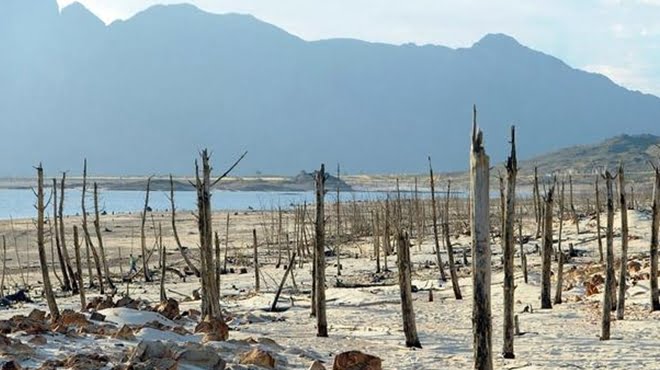Water levels in the dams supplying drought-stricken Cape Town have dropped to 21.9 percent, the city’s deputy mayor said on Wednesday.
Ian Nielson said dam levels fell by 0.3 percent in the past week, a smaller drop than in previous weeks after the city had two days of rainfall late last week.
“This decline, which is lower than in previous weeks, is a welcome confirmation of the impact of the continued efforts by Capetonians to save water, and includes a small contribution from rainfall.
“Dam levels are however still lower than they were in previous years at this time, and we have to continue our saving efforts to ensure that we get through this year safely”.
He said the city’s collective water consumption declined to 521 million litres of water a day last week, which was lower than usage levels in January and February but still too high to prevent the city running out of water as it battles the worst drought in more than a century.
“Getting down to 50 litres [per person] per day is the only way to keep Day Zero away,” Nielson warned.
